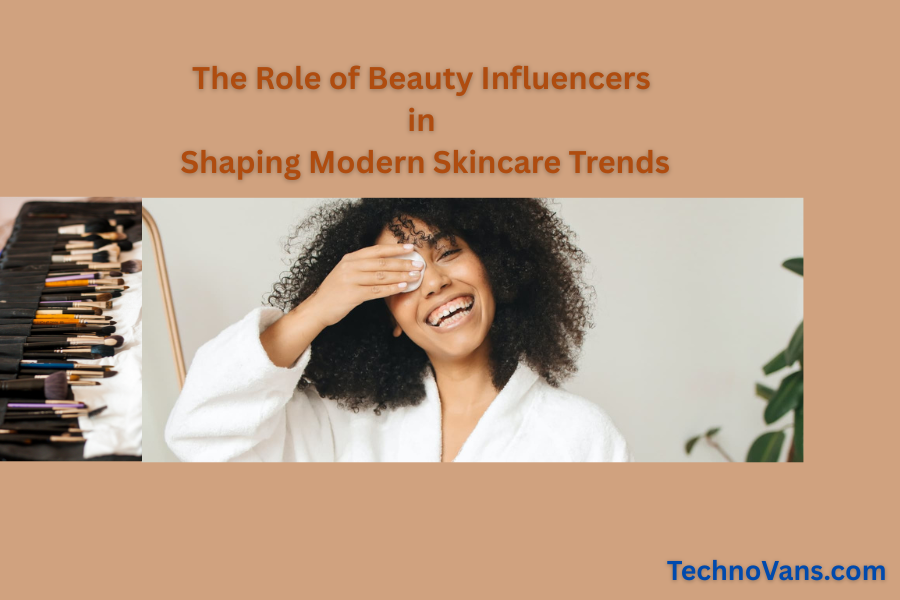The Role of Beauty Influencers in Shaping Modern Skincare Trends
Key Takeaways
- Beauty influencers bridge the gap between brands and consumers, offering relatable and trustworthy content that helps demystify complex skincare topics.
- Social media platforms like Instagram and TikTok are primary channels for disseminating skincare trends, fostering viral movements, and providing instant feedback loops.
- Authenticity and transparency are crucial for influencers to maintain trust and credibility with their audiences, pushing brands toward greater openness.
- Influencers play a significant role in promoting diversity and inclusivity within the beauty industry, inspiring brands to expand their ranges and messaging.
- Collaborations between influencers and brands can lead to innovative product developments tailored to consumer needs, accelerating cycles of innovation and adoption.

Table of Contents
- Introduction
- Influencers and Consumer Trust
- Social Media Platforms as Trendsetters
- Authenticity and Transparency
- Promoting Diversity and Inclusivity
- Collaborations Driving Innovation
Introduction
Beauty influencers have risen as contemporary arbiters of style and science in an era where skincare routines are as pivotal as fashion choices, and product ingredients are scrutinized akin to nutrition labels. Their platforms transcend mere showcases of flawless skin; they serve as dynamic hubs of dialogue, innovation, and influence that span the globe. By engaging millions with daily tutorials, ingredient analyses, and candid testimonials, these digital mavens have fundamentally transformed the marketing of skincare products and how individuals comprehend, purchase, and utilize them. The traditional sway of polished magazine ads and celebrity endorsements is yielding to an approach that values the unfiltered expertise and authenticity influencers offer their audiences. Consequently, for emerging brands and industry giants, partnering with beauty influencer agencies has become a strategic imperative to reach informed, engaged, and increasingly discerning consumers. These agencies assist brands in navigating the complexities of influencer collaboration, fostering authentic campaigns that organically bridge the gap between advertiser and audience while driving tangible results and market shifts. Through a compelling mix of personal storytelling, hands-on product reviews, and innovative visual content, beauty influencers cultivate a deep sense of connection and trust that traditional advertising campaigns seldom achieve. Platforms like Instagram and TikTok—where content can be both meticulously curated and instantly reactive—have become launchpads for global beauty phenomena and new consumer behaviors. On these platforms, influencers provide everything from in-depth ingredient education to step-by-step routines tailored to specific skin concerns, granting everyday users unprecedented access to knowledge once exclusive to dermatologists or makeup artists. These activities have democratized the skincare conversation, making expert advice more relatable and accessible than ever, and challenging the top-down nature of beauty standards long set by industry elites. With every swipe, share, and comment, the power balance in skincare is shifting toward the voices that speak most directly and honestly to consumer needs.
Influencers and Consumer Trust
Beauty influencers now function as trusted guides in a saturated and often intimidating skincare market, where consumers regularly grapple with information overload and an ever-increasing array of products. Amidst this noise and confusion, many individuals turn to trusted influencers for knowledgeable opinions and candid, firsthand reviews. Unlike traditional advertisements—which typically showcase only the best-case scenario for a product—influencers offer nuanced perspectives, demonstrating how a product works in the real world over time and across different skin types. Many influencers share their entire journey, from initial use to results weeks later, including any setbacks along the way. On platforms like YouTube, long-form content in the form of tutorials and product “empties” videos invites viewers into a detailed, ongoing skincare journey. At the same time, Instagram Stories and TikTok allow for spontaneous check-ins and real-time feedback. Followers can interact directly with influencers, ask questions, and receive tailored advice, fostering a two-way dialogue highly valued by today’s consumers. Surveys indicate that Gen Z and Millennials, who comprise the bulk of social media audiences, are substantially more likely to trust someone who shares their lived experiences and vulnerabilities over a celebrity or unapproachable figurehead, with many citing authenticity, relatability, and honesty as top decision drivers.
Social Media Platforms as Trendsetters
Instagram and TikTok have evolved into global trend incubators, shaping how skincare ideas traverse the world. These visual-first platforms amplify the impact of the latest product launches or routines overnight, sometimes propelling obscure brands or ingredients into viral stardom within days. Instagram’s static photo grids provide space for stunning before-and-after transformations and curated product flat lays, while the Stories feature delivers informal updates, live Q&As, and behind-the-scenes exclusives. TikTok’s short-form format encourages even more rapid virality, as users remix popular skincare hacks, join trending challenges, or participate in hashtag campaigns such as #SkinTok, #skincareaddict, and #productreview. This structure rewards experimentation and immediacy, allowing audiences to witness the efficacy (or drawbacks) of a product almost in real-time. Beyond product launches, these platforms have also become breeding grounds for education, as dermatologists and chemists join influencers to debunk myths, clarify ingredient usage, and promote healthy skin habits to millions. Hashtags like #empties encourage users to finish products before reviewing them, enhancing credibility, while communities like #skincarecommunity foster a supportive environment for users of all experience levels.
Authenticity and Transparency
With audiences becoming savvier and more discerning, authenticity has become the gold standard in the influencer landscape. No longer are followers content with perfectly edited, highly scripted endorsements; instead, they crave raw, genuine insight into both the triumphs and the failures of a skincare journey. Influencers who succeed today often share vulnerable moments, showing breakouts, disappointments with certain products, or honestly discussing the side effects and limitations of a new formula. This transparency resonates deeply, as it reassures consumers that it’s normal to have setbacks or to react differently to popular products. The value of authentic reviews is so high that many followers consult influencer feedback before making purchase decisions, treating their recommendations with the credibility of a trusted friend’s advice. As a direct result of this cultural shift, brands have moved from tightly controlled marketing strategies toward more collaborative approaches, frequently inviting influencers into the process of formulation, product testing, and market launches. Such partnerships ensure that influencer voices are prioritized in development, often resulting in products that mirror the real concerns and desires of users.
Promoting Diversity and Inclusivity
The explosion of beauty content on social media has catalyzed a much-needed shift toward diversity and inclusivity throughout the industry. In the past, mainstream beauty campaigns were criticized for their narrow focus, often excluding people of color, older adults, or those with visible skin conditions. Today’s beauty influencers, representing every background and skin type, use their platforms to spotlight these communities, intentionally broadening the concept of what is considered beautiful and worthy of attention. Whether advocating for more inclusive foundation shades, showcasing cultural skincare rituals, or opening up about sensitivities like eczema or acne, influencers are breaking down longstanding barriers and advocating for real change. Their advocacy has encouraged major beauty brands to expand product lines, rethink campaign casting, and make diversity a foundational value. For many followers—especially those who have historically felt unseen—this positive representation fosters a greater sense of belonging, self-acceptance, and empowerment to embrace their natural selves. The beauty industry’s collective push toward diversity and inclusivity, fueled by influencer activism, is not only reshaping campaigns but also elevating the conversations around self-esteem, acceptance, and broader cultural change in beauty.
Collaborations Driving Innovation
The evolution of influencer-brand relationships has transformed from transactional sponsorships to deep, collaborative partnerships that ignite genuine innovation. Today, many top influencers work directly with brands throughout the product development lifecycle, lending their insights to everything from raw ingredient selection to packaging and marketing. This synergy allows for real-time user feedback, ensuring new launches respond quickly to community interests and pain points. The result: products that resonate, sell out quickly, and often start new trends rather than simply following them. Influencer-led partnerships have powered movements like “clean beauty,” championed SPF education, and even introduced K-beauty ingredients into Western markets. The content generated—whether detailed ingredient analyses on YouTube, viral #GRWM (Get Ready With Me) routines on TikTok, or unfiltered Instagram Stories—makes these launches highly visible and accessible. These collaborations drive rapid consumer adoption and encourage legacy brands to innovate, adapt, and keep pace. As a result, influencers have cemented their status not only as marketers but as active agents of change, continually shaping the future of skincare for everyone involved—brands, followers, and the wider industry.



